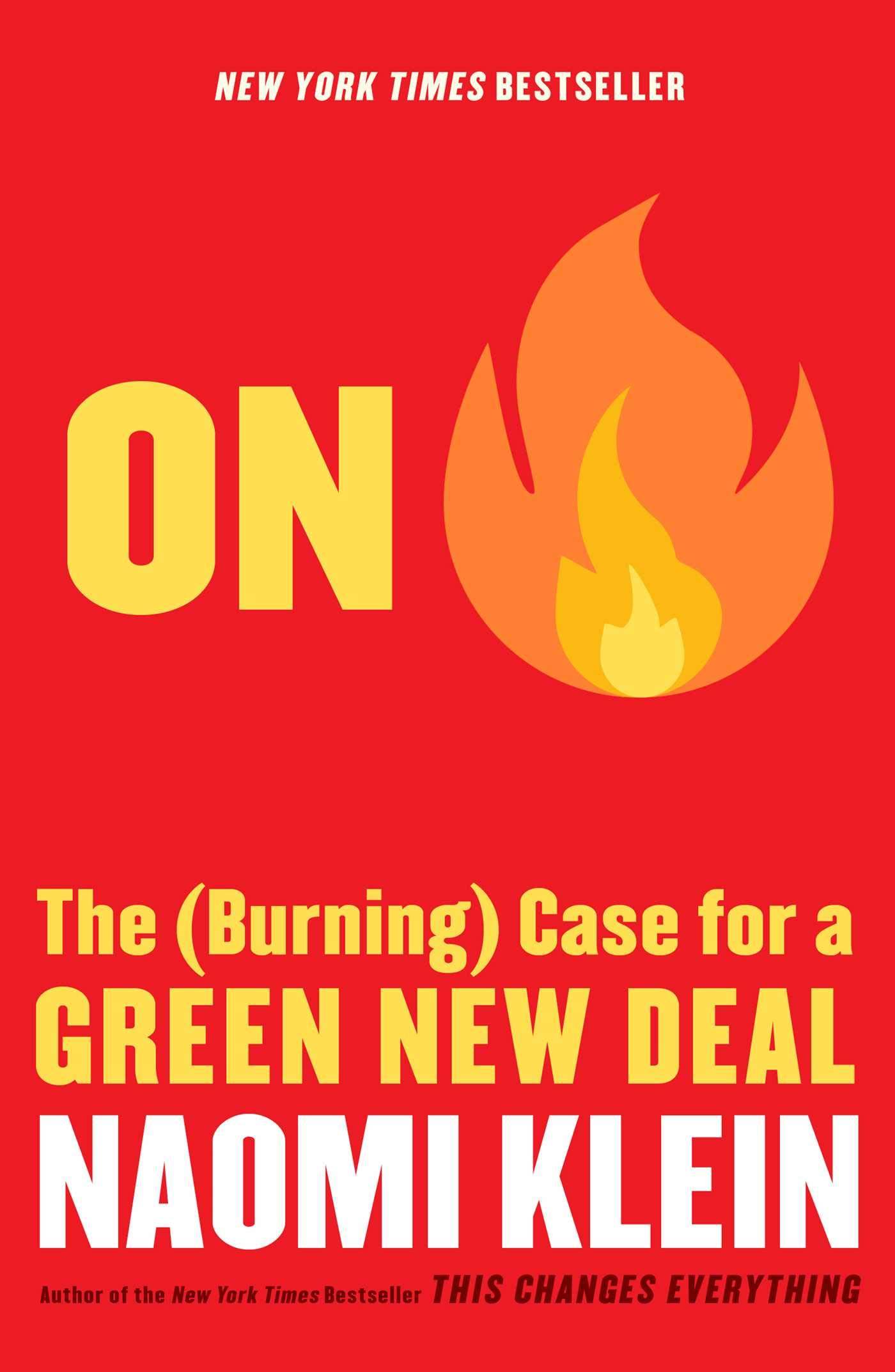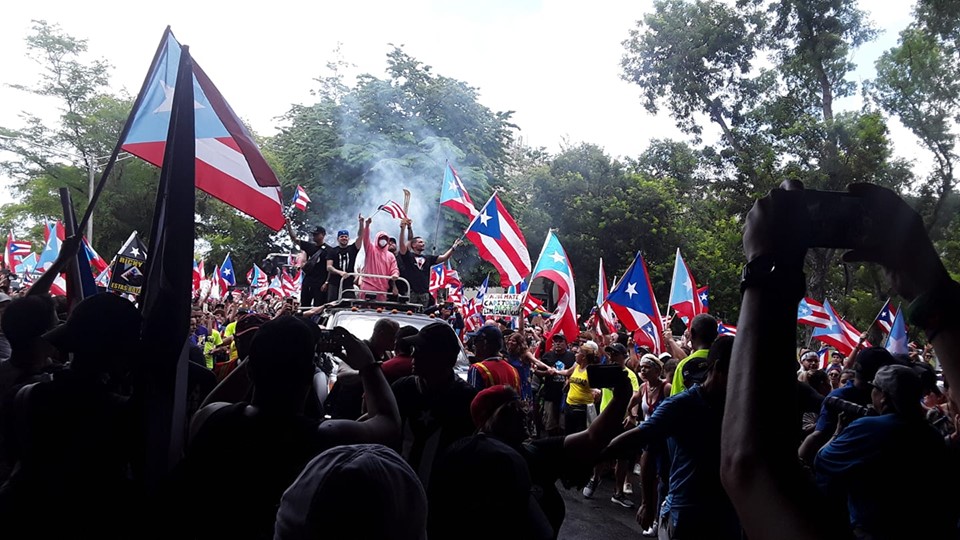Read our coverage of the coronavirus pandemic here.
From many Yeses to one big Yes: towards a global Green New Deal
Posted on 29 Apr 2020 Categories: Blog, Climate crisis, Coronavirus, New economic models, Event reports
by Caroline Hartnell
‘Only a crisis – actual or perceived – produces real change. When that crisis occurs, the actions that are taken depend on the ideas that are lying around. That, I believe, is our basic function: to develop alternatives to existing policies, to keep them alive and available until the politically impossible becomes the politically inevitable.’
Milton Friedman, 1962
 Major shocks can be moments when we lose a lot or moments of transformation, said Naomi Klein, activist and author of Shock Doctrine and On Fire, speaking on a 16 April webinar jointly hosted by Ariadne (a network of funders supporting social change and human rights) and the Funders Initiative for Civil Society. ‘Crises are moments when people are forced to focus on daily emergencies,’ she said. ‘Forces often push through very quickly to bring changes that bring more inequality.’ As if to illustrate the point, just as the webinar ended, I received a New York Times alert that the US Environmental Protection Agency was weakening controls on mercury and other toxic pollutants by coal- and oil-fired power plants.
Major shocks can be moments when we lose a lot or moments of transformation, said Naomi Klein, activist and author of Shock Doctrine and On Fire, speaking on a 16 April webinar jointly hosted by Ariadne (a network of funders supporting social change and human rights) and the Funders Initiative for Civil Society. ‘Crises are moments when people are forced to focus on daily emergencies,’ she said. ‘Forces often push through very quickly to bring changes that bring more inequality.’ As if to illustrate the point, just as the webinar ended, I received a New York Times alert that the US Environmental Protection Agency was weakening controls on mercury and other toxic pollutants by coal- and oil-fired power plants.
Lessons from 2008
What can we do to ensure that we emerge from this crisis in a fairer, more equal world rather than a world of heightened inequalities? What can we learn from the failure to transform after 2008? Going back to Milton Friedman, a lot will depend on the ‘ideas lying around’. His famous quote is the mission statement for a massive investment in the intellectual architecture of right-wing ideology. ‘Progressives have received the message that they need to stay away from big ideas,’ said Klein. ‘We need to invest in ideas. We are up against forces that have taken ideas very seriously, ensuring theirs are the ideas lying around.’
The far right are more internationalist than progressives, said Asad Rehman, executive director of War on Want. ‘We need to establish a connection at global level and create a positive, bold global vision. The danger is that the policy space that is opening up will be occupied by forces that are already there. How do we avoid austerity 2.0 in the UK?’ Both Klein and Rehman felt that charitable foundations could play a valuable role in building up a progressive infrastructure of ideas.
In 1999 and 2008, said Klein, movements were mainly focused on ‘No’ – No to austerity, bailouts, globalisation – but when it came to Yes there was no clear message, no global vision. Many Yeses were well articulated but they needed to be woven into a credible vision. ‘We need the No but also the summary Yes to capture the main Yeses of grassroots movements. The global north failed to put forward concrete alternatives to the failures of neoliberalism. Neoliberalism has polluted our imagination, made collective action suspect. We didn’t say clearly what we wanted. A scattergun approach with 10,000 demands, often contradictory, won’t work.’
A Hurricane Maria moment?
Is there any hope of creating a global vision in our world of right-wing populists? In Klein’s view the post-2009 generation have less polluted imaginations and a greater willingness to offer solutions. Trump, Bolsonaro, Duterte – they are ‘incredibly dangerous but also massively inept’. The covid crisis should be seen as an important organising opportunity to take on these leaders.
We are having what Klein calls a ‘Hurricane Maria moment’ – the moment when Puerto Ricans, following the devastation caused by Hurricane Maria in September 2017, realised the government wasn’t there for them. Two years later, following the leak of messages between the island’s governor, Ricardo Rosselló, and his friends and political allies, many of which targeted Puerto Ricans who died during the storm, a mass uprising led to Rosselló’s resignation. Klein refers to Puerto Rico as ‘a moment of unveiling and of organising’ and she refers to Maria as ‘a very tough teacher’.
What are her lessons for the present crisis? ‘We are learning what is essential,’ said Klein. ‘We consume so much that is not essential. We have to deal with the unsatisfying wastefulness of our high-end standard of living. What matters are our loved ones, carers, essential workers, nature. There is potential for this to resonate with so many people.’

The burning case for a global Green New Deal
In the last year, Klein has been giving talks about the burning case for a global Green New Deal. Until six weeks ago people said ‘no one is going to do this when the economy is doing so well’. The New Deal followed the Great Depression. The US won’t do something bold with a booming stock market and historically low unemployment rates. But all that has changed in a few weeks. ‘Our chances are better now because of the huge economic stimulus plans that will be needed. This is the most developed plan.’
The first stage in a crisis is rescue, then comes recovery, then reimagining – for which the seeds will be planted in the recovery phase. The care economy is low-carbon – ‘we need to build on appreciation for low-paid workers’. We need a much more robust public sphere and public direction of the private sphere. People invoke the Second World War as proof that transformation is possible in a very short time.
Fighting climate change and poverty together
Covid, like other disasters, tracks inequalities, said Klein. BAME people have high rates of diseases like diabetes and high blood pressure, and are heavily involved in running front-line services. Climate change similarly involves built-in injustice, with those least responsible feeling most impact. What we need is a global Green New Deal, which acknowledges what the richer countries, especially the US, owe to the rest of the world – what Bolivian diplomat Angelica Navarro has called a ‘Marshall Plan for the Earth’.
What matters is that we are fighting climate change and poverty at the same time, said Klein. ‘We must never move away from justice or science. We need fundamental transformation to almost every aspect of our society.’
The climate movement can make the mistake of focusing totally on carbon emissions, said Klein. A global Green New Deal means a holistic, interdisciplinary approach to the climate crisis. It is the answer for climate, for recovery, and for sustainable development. Framing our demands must be about silo busting. ‘We need to bring together northern GNDs and southern movements for justice.’
We have a ten-year window for addressing climate, said Rehman in conclusion. ‘Covid has created a window for a just recovery. This is about being bold and moving forward together.’ ‘We need to be master storytellers,’ added Klein.
Posted on 29 Apr 2020 Categories: Blog, Climate crisis, Coronavirus, New economic models, Event reports
